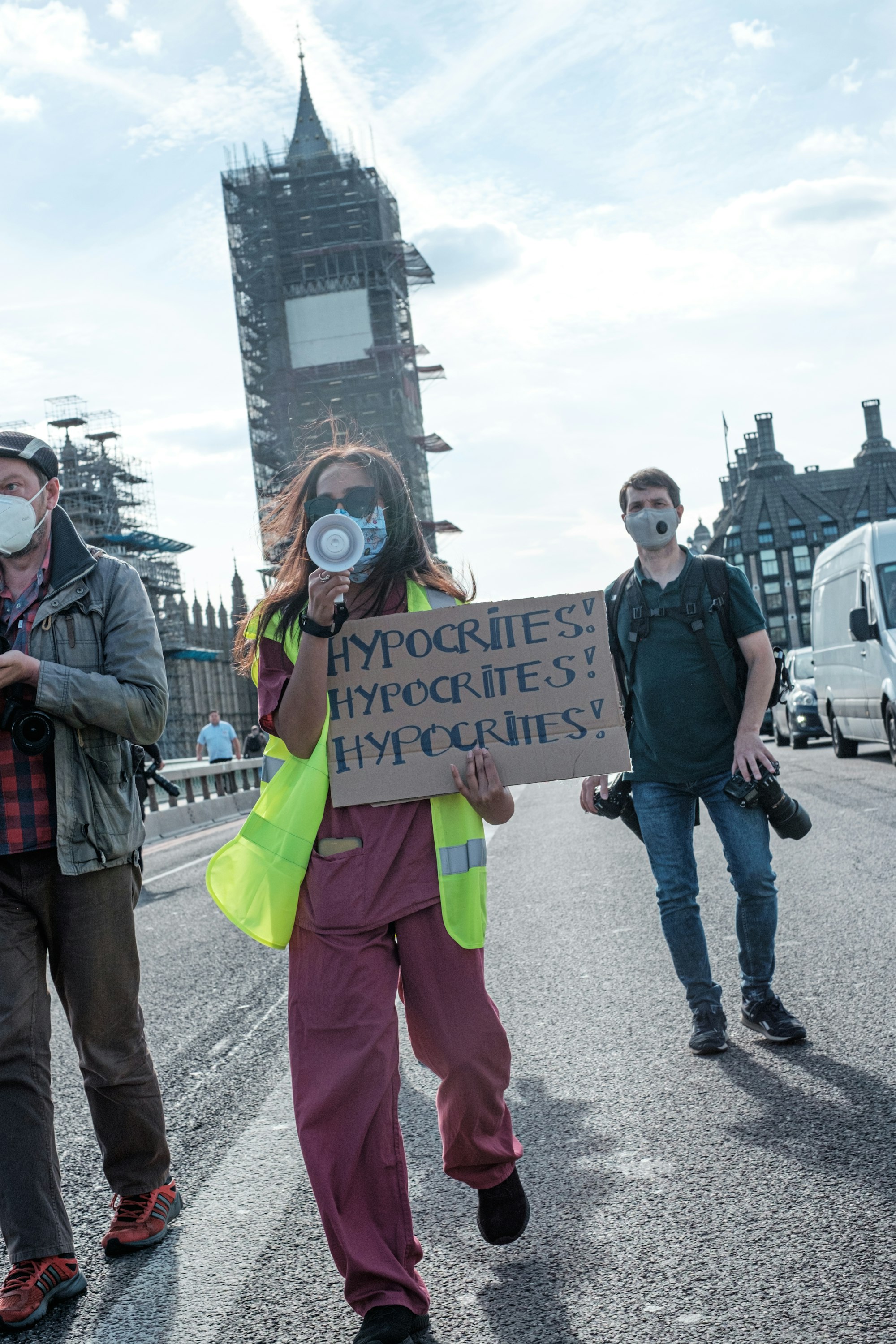Prime Minister Boris Johnson has faced a tough few weeks. Much of this has been of his own making. Beginning with an ill-judged defence of a party member facing punishment for breaking parliamentary rules, leading to further accusations of financial impropriety in relation to the earnings of Government ministers outside of Parliament, and culminating in a bizarre and error-strewn speech by Johnson to senior business leaders. If the Prime Minister thought this was the end of it, then he was mistaken. Allegations that parties had been held in Johnson’s Downing Street residence during periods of national lockdown were published in late-November. These allegations were initially denied, but the emergence of a video showing the Prime Minister’s aides joking about having attended one party and claims of further parties forced an embarrassing apology in the House of Commons.
Meanwhile, in the same week that the accusations of illegal Downing Street parties were first raised, the UK recorded its first case of the Omicron variant of Covid-19. Reports that the new variant was more transmissible, and vaccine efficacy lower, than with earlier variants soon emerged. This drew statements from the Health Secretary, Sajid Javid, and senior scientific and medical officers the hinted towards the need for stricter public health measures before Christmas. This is where the Prime Minister’s problems with a second, and potentially more politically damaging, kind of party began.
The Johnson Government had spent the latter part of the summer in triumphant mood. The removal of nearly all Covid-19 restrictions on ‘Freedom Day’ in July was accompanied by statements that it was time to stop ‘cowering’ to the virus, and that the end of restrictions was now irreversible. While these statements were probably an attempt by the Government to boost the confidence of a population that had been locked down intermittently for nearly 18 months, it stored up problems for the Prime Minister. The most damaging of these problems in political terms was that a significant proportion of his own party backbenchers, many of whom have been resolutely opposed to restrictions on personal freedoms throughout the pandemic, had taken the Government at its word.
Fast forward again to 14 December and these tensions came to a head during the debate on the Government’s ‘Plan B’ measures to tackle the rising number of Omicron cases. The three main measures up for debate were:
- the plan to make vaccinations compulsory for NHS workers in England;
- requiring over-18s to prove they are fully vaccinated or provide a negative Covid-19 test to enter large venues, eg nightclubs, in England;
- and extending existing compulsory wearing of facemasks in public venues.
The Prime Minister, well aware of the febrile atmosphere within his own party over the measures, not least the unedifying sight of a Conservative MP comparing vaccine passports to Nazi Germany, had already conceded the need for a testing regime to run alongside vaccine certificates for entering larger venues. However, this concession was not enough to prevent a large rebellion for the Prime Minister.
The debate, marked by hostility from the Government backbenches, ended with 38 Conservative MPs voting against continuing compulsory mask wearing, 63 against compulsory vaccination of NHS workers and 99 rebels against the most controversial measure requiring proof of vaccination or a negative test to enter larger venues. The size of this final rebellion put the Prime Minister in the embarrassing position of requiring opposition votes to pass his measures despite holding a majority of around 80 seats. This period has also seen the opposition Labour Party now holding a consistent lead over the Conservatives in opinion polls and a shock by-election defeat for the Government in a seat that previously held a 23,000 vote majority.
So, how might this impact the response to the pandemic by the UK Government over the coming weeks? First, it’s clear that any further toughening of restrictions risks widening the divide between the Prime Minister and anti-restriction hardliners on the Government backbenches. What might make this even tougher for the Government, as well as hampering the speed by which the Cabinet can handle the emerging crisis, is the promise made following last week’s debate. In response to complaints by Conservative backbenchers, Transport Secretary, Grant Shapps, made assurances that any tightening of restrictions would have to be approved by Parliament.
This makes life difficult for the Prime Minister. Given that the House of Commons closed for its Christmas break on 16 December, the chamber would need to be recalled for any measures to be debated. However, recent recalls of the Commons have taken two-three days from the point they were announced. Given that many MPs will have returned their constituencies last Friday, and faced with holiday travel difficulties, it’s hard to imagine MPs returning much faster.
With the current number of Covid-19 cases doubling every twi-three days, this represents a significant barrier to the fast and flexible public health response needed at present. Of course, the Prime Minister could bypass Parliament in responding to the new surge of cases. But this would undoubtedly infuriate many in his own party. With the Prime Minister’s understanding that just 55 (15%) of his own MPs are required to force a leadership contest, this would be a very brave (or foolish, depending on your standpoint) move. A further possibility with fewer party political barriers, although one fraught with potential public health problems, is that Johnson resists the calls from his scientific advisers and refuses to bring in any new restrictions over the Christmas break.
What is clear is that Boris Johnson has a significant challenge on his hands over the coming weeks. Much has been of his own making, some of it hasn’t. Whether he recalls Parliament, employs his executive rule-making powers, or believes the measures agreed last week are enough to stem the tide of growing Omicron cases, the political fallout of the last month will have had important consequences for the response to Covid-19 in England.
TWEET
